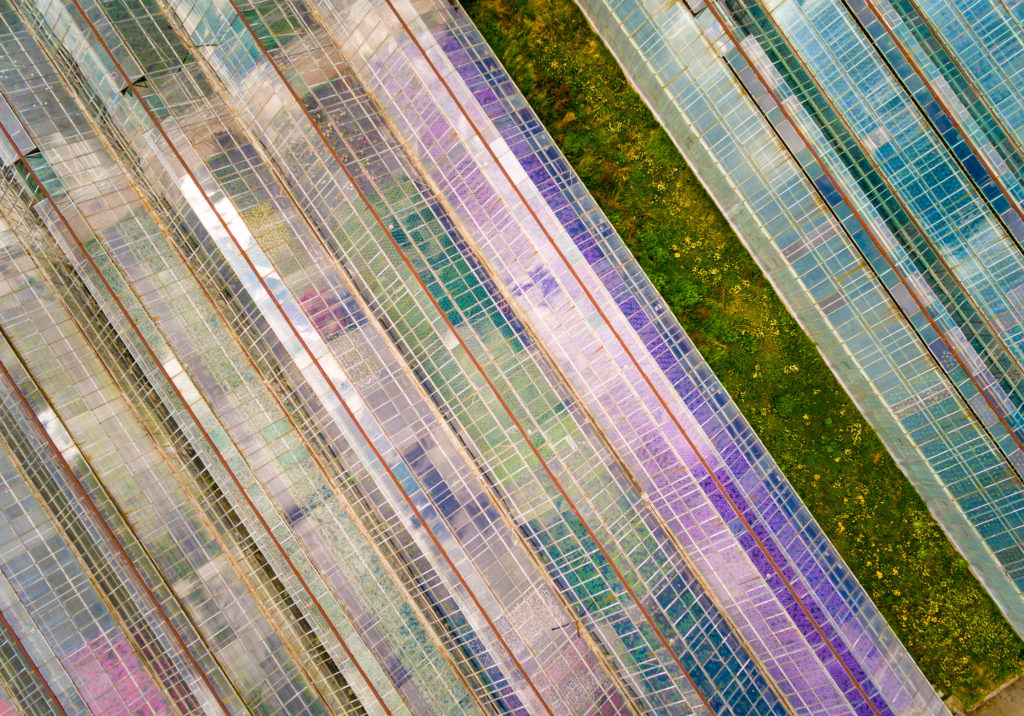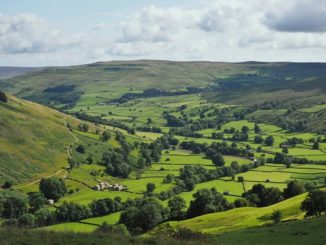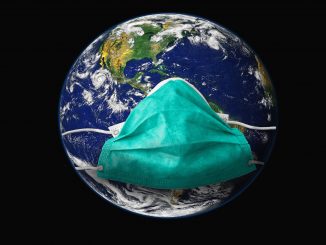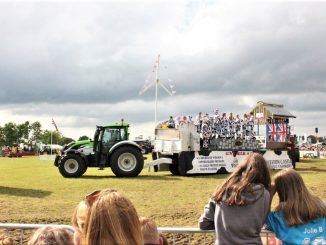
How can innovations in digital agriculture ensure inclusion and equity for all actors in the value chain? What are the examples of digital innovations in agriculture that have already or will have a real impact on farmers’ work, quality of life and on sustainability? And how can we develop the relevant policies to foster the development of digital technologies and services that would ensure inclusion and equity for all actors in the value chain? Here, Véronique Bellon Maurel addresses these questions, which came up at side-event of the FAO Science and Innovation Forum 2022. Synthesis of the Science and Innovation Forum 2022 webinar on Responsible Digital Agroecology, from farm to fork. ARC first encountered Véronique Bellon Maurel’s work on this topic at a DESIRA Rural Digitalisation Forum event held in November.
Véronique Bellon Maurel
How can innovations in digital agriculture ensure inclusion and equity for all actors in the value chain? To address this issue, a 2 hour webinar was jointly organised by CGIAR-CIAT, #DigitAg, INRAE, CIRAD and University of Montpellier on Thursday October 13, 2022, as a side-event of the FAO Science and Innovation Forum 2022. The objective was to give examples of digital innovations in agriculture that have already or will have a real impact on farmers’ work, quality of life and on sustainability, and then to exchange in a multistakeholder panel about the relevant policies to foster the development of digital technologies and services that would ensure inclusion and equity for all actors in the value chain.
Easy Tech
A first message was to show that it is possible to develop technologies that are easy to access and to use by smallholders. Julien Sarron (CIRAD, France) and Hamza Benhadou (Sowit, France) presented SoYield, a tool free for smallholders, which uses a smartphone to estimate the yield of fruit trees, today in Sub-Saharan Africa. Cheikh Ahmadou Bamba Gueye (UCAD, Dakar, SN) presented the CowShed project to address the lack of connectivity encountered by breeders who practice pastoralism in areas with no mobile phone coverage in Senegal.
The answer was to build a device including a smartphone, a LoRa transmission system and a solar panel. Carla do Nascimento (Digital Agriculture research unit, Embrapa, Brazil) illustrated digital agroecology with three projects:
(1) ZARC (agricultural zoning of climate risks) which provides best planting dates for more than 40 species in all brasilian municipalities, based on climate/ soil data
(2) ICLF (integrated crop-livestock-forest system) which provides real-time information to farmers (productivity, animal welfare),
(3) a plant disease diagnosis tool based on artificial intelligence.
A Value Chain Approach
A second message was that digital agroecology is not limited to the crop or the animal, but encompasses the whole value chain, with the objective of increasing farmers’ revenues and role. In the introduction, Jacob van Etten, CGIAR (Alliance of Bioversity & CIAT – Digital Inclusion lever) stressed the importance of developing such a systemic vision taking into account the whole food system and in particular local characteristics and to make digital tools coherent and interoperable, leading to the construction of genuine digital ecosystems, which also raises the question of their sustainable financing.
Isabelle Piot-Lepetit (#Digitag, INRAE, FR), #DigitAg’s Director-deputy, made a panorama of research carried out by #DigitAg on the contribution of digital tools to fair revenues and better working conditions and outlined the importance of involving all stakeholders of the food system in digitalisation, in order to anticipate impacts, eg potential asymmetries in value chains or benefits created by more transparency (Titan European project).
Hannah Wittman (University of British Columbia, Vancouver, CA) stressed the principles of inclusion, diversity and data justice to support ”responsible digital agro-ecology”, drawing on his experience of participatory agro-ecological certifications called PGS (participatory guarantee systems) with small farmers’ networks in South America and elsewhere.
Doris Macquard (DG Agri, Bruxelles) outlined that “Responsible” was remarkable as it entailed ensuring sustainable transformation processes, considering socioeconomic and environmental aspects.
Digital Platforms for P2P sharing
A third message was that digital platforms are a very good way to share experience from peer-to-peer. Shreya Agarwal (Digital Green, UK) introduced this non-profit organisation that reaches 3 million small-scale farmers through a video community approach: farmers make videos about their successful practices and share them with other farmers. She emphasised the importance of strengthening inter-personal channels, alongside remote channels (SMS) to improve adoption of practices.
Access Agriculture presented by Joe Rogers (Access Agriculture, UK) is another non-profit organization which shares farmers-to-farmers training videos on a web platform. But it also tackles the issue of lack of internet connection. Access Agriculture has set up a service of video shows in rural areas based on a tryptic: videos in local language, solar-panel-powered projectors and teams of young people, named “entrepreneurs for rural access”, who organize the shows.
Lini Wollemberg (CIAT, University of Vermont, USA) presented the “Transitions” project, which aims to study inclusive digital technologies and how co-creation of practices is encouraged. A framework based 2 axes (Farmer engagement and co-creation of virtuous practices) divided in 6 principle has been set up and will be applied to 2 case studies (Brazil and Vietnam).
Supportive Ecosystems
A fourth message was that a specific ecosystem is needed to allow the successful development of digital agroecology and this calls specific policies. Pascal Bonnet (CIRAD #DigitAg) who chaired the third panel dedicated to policies, reminded that developing digital agriculture calls for a policy mix that goes beyond agricultural policies.
Laurens Klerkx (WUR, U of Talca, CL) introduced the concept of “social cyber physical systems” which stresses that creating digital agreocology goes beyond the technical aspects. Therefore policies regulating this system need to have a systemic view and be coordinated at national and international levels.
As CEO of a start-up in Niger, Daouda Hamadou (Novatech, Niamey, NI) described the ideal ecosystem for a successful emergence and growing of digital start-ups: investors to finance, governments to give guarantees, research and incubators to support, especially, management issues.
As representant of farmers, Ishmael Sunga (SACAU, Pretoria, SA) outlined fundamental issues on which policies need to focus to enhance the use of digital technology by the smallholder farmers: 1) the need for backbone digital infrastructures; 2) the issue of cost of digital devices and of information; 3) the need to improve digital literacy at large scale; 4) the issue of data governance; 5), the issue of investment in R&D, too low regarding the importance of digital technologies.
Jérome Le Roy (La Ferme Digitale, Paris, FR) described the outputs of a report mandated by the French government to help in designing the French AgriTech, ie the french ecosystem conducive to digital agriculture. The main recommendations were: 1) Supporting agriTech start-ups from the beginning, 2) Securing funding sources, 3) Implementing a conducive legal framework, 4) Helping to attract more digital skills in agriculture, 5) Accelerating the transfer of research results to start-ups, 6) Including users. The role of Research & Innovation has been particularly stressed by Doris Macquard (DG Agri, Bruxelles) who stressed that digitisation and agroecology had to be promoted as supplementary approaches, and that Research & Innovation had a key role to play to promote this coupling.
Fostering Responsible Digital Agriculture
A two-voices conclusion was done about challenges to foster responsible digital agriculture. As director of #DigitAg interdisciplinary institute, Véronique Bellon Maurel (#DigitAg, INRAE, Montpellier, FR) gave four recommendations: 1) Co-developing digitalisation and agroecology; 2) Considering data as a new production of agriculture and designing services to get more value from it; 3) Following the Responsible Research and Innovation principles; 4) Considering innovation in digital agriculture not only as a matter of technology, but also of economic, organisational, social and political issues.
As FAO Chief economist, Maximo Torero-Cullen (FAO, Roma IT) stressed three challenges: 1) inclusion, in particular related to costs, 2) orientation, especially the way digital technologies can bring out agroecology components and 3) farmers capacities, making them able to understand the provided information. He concluded by reminding us that FAO is investing significantly in building up farmers’ capabilities and digital tools through different initiatives (eg 1000 digital villages), therefore creating a real public good by reducing inequalities and helping all farmers to follow the latest and most efficient ways to produce.
 Véronique Bellon Maurel, agricultural engineer, graduated from Agroparistech Paris, France) and has got a PhD in sensors for smart farming (University of Toulouse). She is working at INRAE, as the Deputy-head of Mathnum department and as the director of #DigitAg, the Digital Agriculture Convergence Lab, a unique institute financially supported by the french governement (France2030 program). #DigitAg gathers 16 public and private partners, 30 research units (+600 researchers). #DigitAg is based on interdisciplinary research bringing together social sciences, digital sciences and agronomists to build the academic foundations of responsible digital agriculture in France and in southern countries. In 2020, #DigitAg created the Occitanum Living-Lab (Occitanie Digital Agroecology), which aims to boost co-creation and use of digital technologies in agriculture to accelerate the development of agroecology and local food. She is involved as WP leader in the european project CODECS, led by G Brunori (Unv. of Pisa, IT), started late 2022. She is one of the co-author of a white book on « agriculture and digital technologies », published in 2022. She is the laureate of various awards for applied research of which most prestigious French Academy of Sciences – IMT « Grand Prix » (2010). She is currently a member-elected of the French Academy of Technologies.
Véronique Bellon Maurel, agricultural engineer, graduated from Agroparistech Paris, France) and has got a PhD in sensors for smart farming (University of Toulouse). She is working at INRAE, as the Deputy-head of Mathnum department and as the director of #DigitAg, the Digital Agriculture Convergence Lab, a unique institute financially supported by the french governement (France2030 program). #DigitAg gathers 16 public and private partners, 30 research units (+600 researchers). #DigitAg is based on interdisciplinary research bringing together social sciences, digital sciences and agronomists to build the academic foundations of responsible digital agriculture in France and in southern countries. In 2020, #DigitAg created the Occitanum Living-Lab (Occitanie Digital Agroecology), which aims to boost co-creation and use of digital technologies in agriculture to accelerate the development of agroecology and local food. She is involved as WP leader in the european project CODECS, led by G Brunori (Unv. of Pisa, IT), started late 2022. She is one of the co-author of a white book on « agriculture and digital technologies », published in 2022. She is the laureate of various awards for applied research of which most prestigious French Academy of Sciences – IMT « Grand Prix » (2010). She is currently a member-elected of the French Academy of Technologies.






1 Trackback / Pingback
Comments are closed.